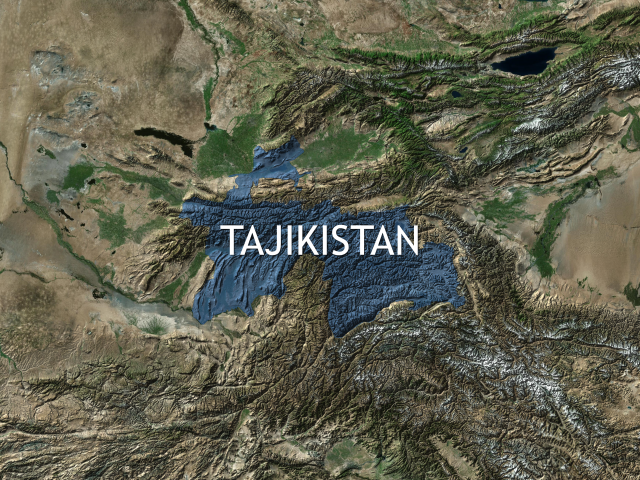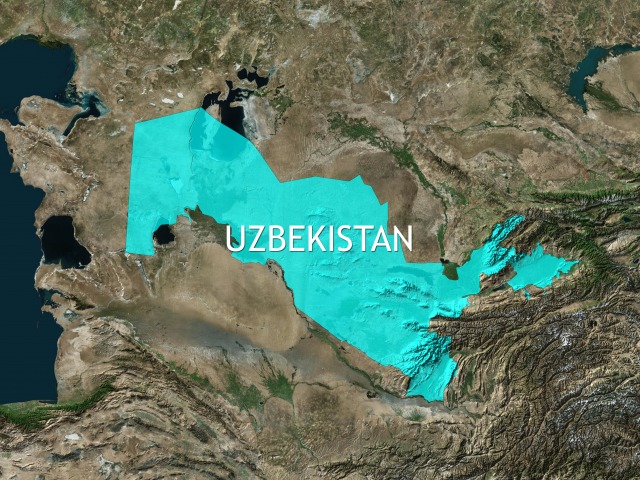
Kazakhstan Cracks Down on Religious Freedom
The central Asian nation of Kazakhstan is cracking down on religious minorities.
60-year-old Teimur Akhmedov, a Jehovah's Witness, was found guilty of "inciting ethnic, social, religious, family and racial hatred in collusion with a group of other persons."
Akhmedov was arrested in January and went on trial on April 6th.
A court in Kazakhstan's capital city of Astana convicted him of sharing ideas that "disrupt interreligious and interethnic concord." He pleaded not guilty. His lawyer says they will appeal.
According to reports, Akhmedo's case file states that he was accused of organizing "religious gatherings involving the capital's residents recently recruited into the community at different apartments in the city of Astana."
Kazakhstan's constitution guarantees religious freedom, but groups such as Jehovah's Witnesses and Protestant Christians face regular harrassment.
In 2011, the country adopted a new set of religious laws "which forced already registered Protestant churches to go through re-registration, but this process of re-registration was extremely complicated."
A U.S. government commission that monitors religious freedom around the world has repeatedly criticized the law.
"Religious groups are subject to police and secret police surveillance," The United States Commission on International Religious Freedom states in its 2017 country report on Kazakhstan. "As a result of the law's registration requirements, the total number of registered religious groups fell sharply after 2011, especially the number of "nontraditional" religious groups, which declined from 48 to 16."
In addition, USCIRF says the law "sets stringent registration requirements with high membership thresholds, and bans or restricts unregistered religious activities, including those relating to education, literature distribution, and clergy training."
The religious commission has urged authorities in Kazakhstan "to ensure anti-extremism laws do not serve as a pretext for infringement on the right to peaceful religious observance and expression."
Some 17 million people live in Kazakhstan. About 65 percent of the population is Muslim.
Meanwhile, in neighboring Russia, the country's Supreme Court recently banned Jehovah's Witness as an extremist organization and ruled that all its properties be seized.
These moves come as Christians across Central Asia continue to look for ways to share Christ with people.
If you are a Christian living in any of the five former Soviet Republics of Uzbekistan, Kazakhstan, Tajikistan, Kyrgyzstan or Turkmenistan, you can expect intimidation, harassment -- or worse -- jail time, for telling others about their faith.

Maksim lives in northern Tajikistan.
"When the authorities discover someone has converted to Christianity, they will gather relatives, friends and family of the accused and bring him or her before an Islamic Council of Elders," Maksim said. "The convert then stands before the group and has to decide between faith or family."
Artur, not his real name, is from Uzbekistan.

"I am called to be a witness for Christ, but that has been a dangerous calling," he told CBN News. And he's not alone.
Twenty-five years after the Soviet Union disappeared and these republics gained their independence, the five so-called 'Stan States' have become repressive and hostile towards people of faith.
Recently, CBN News joined hundreds of young Christians from across the region as they met for the first-ever Next Generation Professional Leaders.
The event was the brainchild and dream of Sergey Rakhuba.
"It is not possible to overstate the significance of this gathering when you have in one room over 500 of the key young leaders from across Central Asia," said Rakhuba, who leads Mission Eurasia, an organization that equips young church leaders in 13 countries of the former Soviet Union.
Rakhuba brought together entrepreneurs, doctors, educators, lawyers and media experts to teach young professionals how to be effective witnesses for Christ in the marketplace.
"This is a generation that didn't grow up in that secular and repressive Soviet mindset so they have a unique perspective, unique gifts and talents that can bring transformation to their communities," he explained.
Rakhuba says it's up to these young professionals to instill biblical values into their societies. Only then will they see lasting change.
"Even though Islam is the dominant religion and radical Islam is becoming more influential here, I'm so blessed to witness the courage and confidence demonstrated by young Christians in Central Asia," Rakhuba said. "Despite the challenges, their compelling personal examples of honesty, integrity and faithfulness will serve as salt and light in their workplaces."




